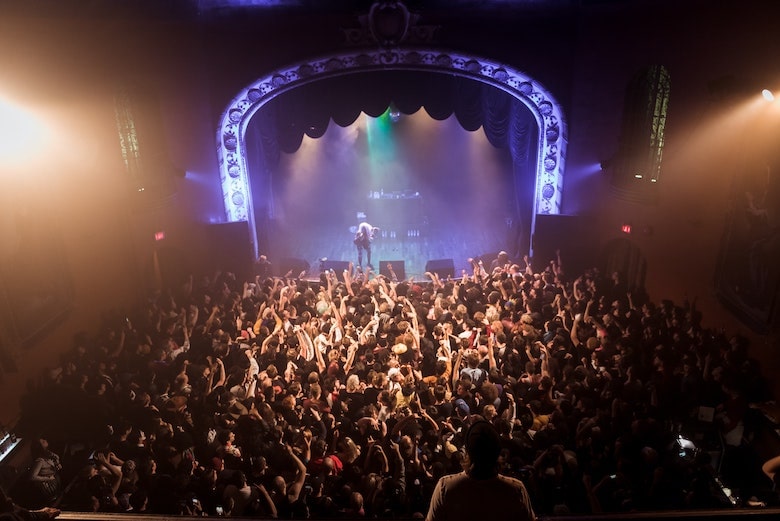Planning and producing live events can be a rewarding and fulfilling experience, but it doesn’t come without some challenges. As an event organizer, you are certain to face some obstacles along the way. From technical issues to difficulties with those involved in the event, when producing live events one needs to be prepared to think strategically and solve any problems that may arise. Foreseeing these obstacles comes with practice and experience in producing live events, but understanding common patterns and issues to avoid, can help you mitigate stress and panic. Below we will be analyzing some common problems that may arise when producing live events, and highlighting solutions and ways to optimize the most successful live events.
Common Issues that Arise When Producing Live Events
No Clear Vision or Mission
When planning and producing live events, you need a starting point. What is the vision for the event? What’s the overall goal or mission? Why are you even organizing the event in the first place? Is it a fundraiser for a charity or more of a celebratory event? How many people do you think will attend the event? Who is the target audience for the event? What artist do you want to book for the event? These are all questions to consider when beginning to work on the event planning timeline. Without a clear answer to these questions, it’s hard to even begin the booking and planning process. Even just a general idea of what you want the event to look like can help guide you and give you a framework to successfully plan. This aligns with the 5 W’s of event planning– Who (who is the target audience,) What (what’s the goal or main take away for the event,) When (when is the event happening,) Where (where do you envision the event occurring,) Why (why are you moving forward with this event? Is there a reason it’s being thrown?). If you can’t answer these questions or are working with someone who lacks a clear vision for their event, this can lead to bigger issues down the road.
Cost and Budget Concerns

Venue Selection
With all the venue options, it can be difficult to narrow it down and find the perfect one to host your event. Additionally, your top choice for a venue might not be available the day of your event, which can be a disappointment. Finding a venue that fits your budget, your event goals, and has an opening on the day of your event can be a hassle. To avoid further stress, create a list of potential venues that would be good fits for your event, and don’t set your heart on just one. Also, there are other factors to consider when choosing a venue. Is the venue in a good location? Is it accessible and does it offer parking options to attendees? What’s the capacity? What’s the layout and ambiance? What other services does it offer– food, tables to use, lighting, sound? If not, you might have to supply any tables yourself and outsource a tech person to handle lights and sound. In the end, when deciding on the right venue, shop around, be flexible, and understand your event goals and budget to ensure the venue aligns with all other aspects of the event.
Weather
For outdoor events, weather issues can cause major distress. Issues with weather can disrupt even the most well coordinated events. For events occurring outdoors, create a Plan B, have alternate venue options and alternate event scheduling plans in place beforehand. Be aware that having an outdoor event comes with weather risks. When deciding whether or not you will be planning an outdoor event, understand where this event will take place. Is it in a place that typically has heavy rainfall? Is it occurring in a season that experiences lots of rain and storms? Be strategic and map out all these potential issues beforehand, and make a backup plan in case weather becomes a major disruptor.
Technical Issues
Sorting out any potential technical issues before the event is a smart idea. Confirming whether or not the venue offers backline or tech assistance in terms of sound and lights is key. If you don’t have this confirmed beforehand, issues can arise. Do you need to hire a production company to assist? Do you need to outsource equipment? Additionally, creating a schedule for tech set up and load in is important, and leads to a smoothly running event. Be on top of the technical aspects of producing live events. Know who is providing what and when, and who needs to be hired to oversee all the technical aspects. Technical and production issues are destined to occur one way or another, it’s a matter of preparedness and being able to problem solve.
Understanding Your Audience
When it comes time to market your event, understanding your audience is important. Who is this event for? What is the target audience? This aligns with having a clear understanding and vision for the event itself. Not knowing the demographic likely to attend your event can make it difficult to market properly and sell tickets. Neglecting to take the time to understand your target audience and demographics can make or break the success of your event. If your event has an older artist performing, cater your event marketing towards an older audience who is more likely to buy tickets to attend. Don’t target a younger audience if that doesn’t make sense with the event itself. Age is just one demographic to consider, location of audience, gender, and race may also come into play. Before rolling out the marketing, consider these factors and truly understand who your audience is when producing live events.
Giving Yourself Enough Time to Plan and Promote
Time management is vital when planning and producing live events. If you don’t allot the proper time to plan the event, book artists, secure venues, hire staff or production needs, market and promote, etc. it can affect the success of your overall event. Be aware of how much needs to be done in order to execute the event, and make sure there is enough time to make it all happen. Promoting the event is a whole process in itself. If you don’t give yourself enough time to properly promote the event, that can affect turnout and ticket sales. Make a timeline for the whole process, create a plan, and stay organized and on top of all the moving parts.
Last Minute Changes to the Event Schedule
It’s likely that last minute changes to the event schedule may occur. Maybe an artist’s flight was delayed and they will now be arriving late, delaying the scheduled sound check time. Maybe there was a technical issue right before the event, causing the start time to be pushed back. Whatever the circumstances are, don’t panic. Know that these issues can happen, and be open and flexible to these changes. Making a schedule is good, but things don’t always work out the way they should and schedules may have to be adapted and altered.
Solutions and Tips for Problem Solving During Planning Live Events
Anticipate and Prepare for Potential Problems
The stress and panic that may come along with event planning and production can be less severe if you prepare for the potential problems listed above. Be aware that nothing is going to run 100% smoothly, but having plans in place to handle unexpected issues will be beneficial. It’s better to be over prepared than underprepared. Conducting risk assessments to analyze any potential risks and developing strategies to minimize them can help you be more prepared.
Build a Reliable Team
Surround yourself with a team that is helpful and reliable. Build a team of experienced entertainment professionals who can effectively handle the challenges that come with live events. Having a group of confidants around you to assist with problem solving during events will make the whole process easier.
Stay Calm and Think Strategically
When problems arise during live events, it’s critical to maintain composure and think strategically. The ability to solve problems may be hindered by panicking or letting overwhelming feelings override logical thinking. Take a step back, evaluate the situation, and break the problem down into smaller, more manageable components in order to find a solution.
Promote Effective Communication
Effective communication is essential when resolving issues that arise when producing live events. Create efficient routes of communication between the team, artists, venues, vendors, and other parties and promote open and honest conversation to avoid any misunderstandings.
Be Flexible and Adaptable
When producing live events, you must remain flexible and ready to adapt. In an atmosphere that is so full of fast changes, difficulties and problems may arise. The ability to be flexible can aid in dealing with any changes and challenges that arise. Recognize that not everything will go as you planned, and that you may need to react fast to such changes. Everyone on the team should think creatively and problem solve to overcome unanticipated issues.
Conclusion
Planning and producing live events comes with its own set of challenges, but having the right mentality can help you deal with inevitable issues. Use the above tips and tricks and remember to remain calm, be flexible, think creatively and strategically, and create plans to be prepared for any potential problems. Though you may encounter difficulties along the way, the result and outcome of a successful event will make it all worth it.
Related Posts:
11 Steps to Successful Festival Event Planning: Part One
Live Event Production: Keeping It Safe
Planning a Festival: Use a Good Timeline








